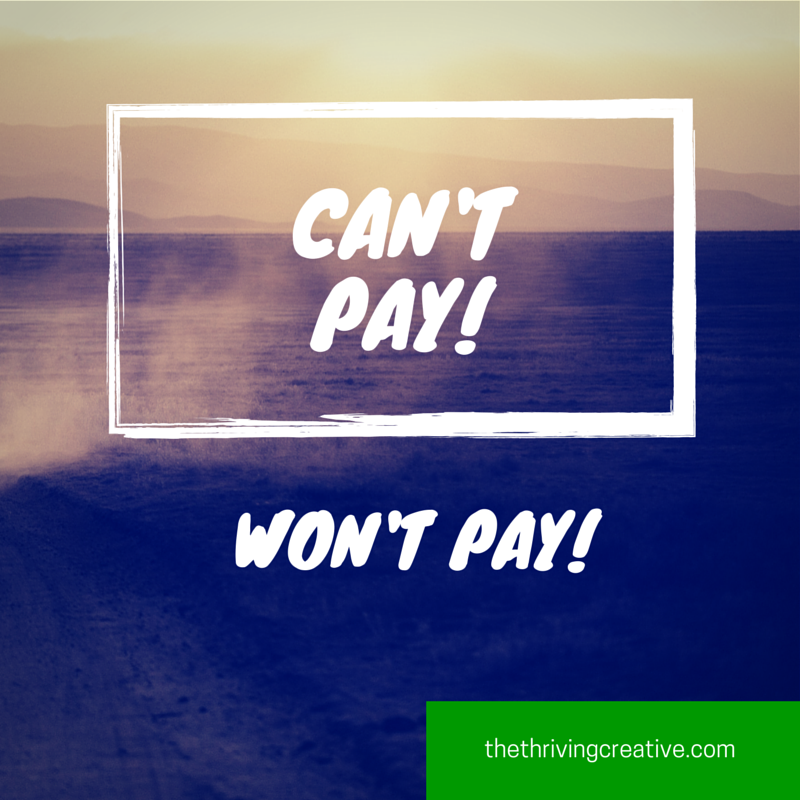How do you deal with customers who don’t pay?
At some point in their careers most artists run into a customer who owes them money.
So what do you do about it?
An Ounce of Prevention
First, let’s talk about what you should be doing to minimise your risk in the first place. Here’s some good practice:
- Make sure you have a signed contract for every job and that the contract spells out when payment is due
- If possible, get a deposit up front (especially for new clients) or make it your policy for payment in tranches: 40% up front, 40% at some middle point, 20% upon completion is common (or divided in three equal payments)
- As part of your negotiations with the client you should be verbally explaining your payment terms to them and enquiring how they handle payment from their side
- If you are at all uncertain about someone you can check them out – doing some research online, enquiring with the Better Business Bureau or Chamber of Commerce (or Companies House in the UK), or asking around your friends and fellow artists. Or, tell the potential client that as a new customer you need to do a ‘credit check’ on them and ask them for two references or a deposit up front. (It’s a gutsy move, but why not?)
- Issue invoices promptly for all work you do and keep a good record of when the invoice was sent out
- Your invoice should clearly state your payment terms (due on receipt, due in 30 days, etc)
How to Escalate the Situation
- If you haven’t received payment within 30 days then reissue the invoice – consider sending a hard copy in the mail and emailing an electronic copy – politely point out that the invoice is now past its due date. You could also phone and make sure it’s been received and politely ask when you can expect payment.
- Keep reissuing the invoice every 30 days
- At 60 days you could also start phoning and asking (politely) about payment – don’t make accusations! Ask if they’ve ‘lost your invoice’ and where you can send it to
- At 90 days issue the invoice with an email saying ‘if this invoice is not paid within 30 days I will be seeking the services of a collection agency’ (at this point you are bluffing in the hopes of getting action)
- At 120 days you will need to consider your options: getting a lawyer, taking them to small claims court or hiring a collections agency. All of these will take time and money so you will have to weigh up whether the amount owed is worth the effort to collect.
- If you have an agent or a gallery that represents you they should be assisting you (or managing the process) for collecting payment.
- Do you belong to a union or association such as Actors Equity or the Musician’s Union? They usually have people who can assist in collections.
In most cases the situation can be resolved. There are very few cases where someone doesn’t get paid. But sometimes you have to be patient.
The key is to keep everything civil. It doesn’t help you to get paid to be rude or abusive. Threats don’t help your case. Methodically pursuing the debt, keeping very good records of when and how you have contacted them, and persistence are usually enough to resolve the situation.
However, I can’t stress enough the importance of being vigilant at the front end of business transactions (using contracts, spelling things out etc) to prevent situations going badly.
With good planning and good luck, hopefully you will never find yourself in this situation.

Leave a Reply